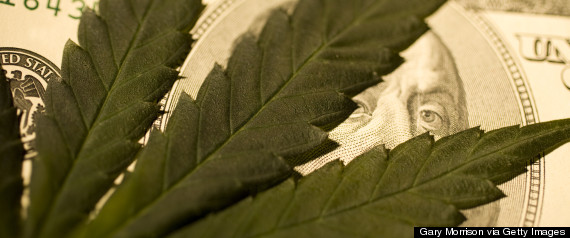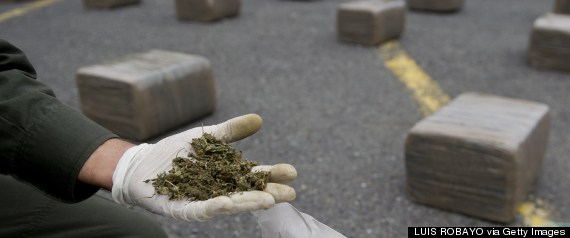The future of legal marijuana is becoming less hazy every day: Americans are continuing to support legalization in record numbers, apparently no longer swayed by the same deceptive arguments drug warriors have used for decades in support of a failed policy of prohibition. With legal weed now being sold at stores around Colorado and soon in Washington state, others are considering riding the tide of popularity to lower enforcement costs and substantial tax revenues.
But just because the anti-marijuana crowd isn't putting forth any good arguments against legalizing marijuana doesn't mean there aren't valid questions worth discussing. And, more importantly, just because these questions exist doesn't mean they are good arguments against legalizing pot.
Below, we'll offer some answers to these questions. Hopefully they'll help foster a debate about legalization that extends beyond "pot should be legal, because getting high isn't a big deal" and "pot should be illegal, because I've been told it's dangerous and I refuse to believe otherwise."
1. As legal pot expands, will corporatization turn the marijuana industry into Big Tobacco 2.0?

With legal marijuana soon expected to outstrip the growth of the smartphone industry and surge to upwards of $2 billion dollars in sales in 2014, nobody should be surprised that big corporations are already lining up to capitalize off the green rush. But what will the evolution of Big Marijuana mean for pot itself?
Corporatization is a scary word, especially in 4/20-friendly circles, where the thought of big business tends to invoke fear of profit-driven greed and social irresponsibility. These common side effects of capitalism don't jibe with the culture many associate with marijuana, and perhaps for that reason, even some in pro-legalization circles have expressed skepticism about corporatization.
"Most people in the pot movement want a progressive pot industry that supports people in communities and that creates a lot of good-paying jobs," longtime marijuana journalist David Bienenstock told Truthout in an interview last year, "but there's the concern that's not how corporate America tends to view free enterprise."
While people like Bienenstock appear worried that corporations could claim some of the progress that pot activists have made toward legalization, many early investors in the marijuana industry maintain that big business will be the key to ushering weed into an era of full, nationwide acceptance. But some critics have also pointed to high-profile transgressions by early pot pioneers as evidence that the industry is already being corrupted by money.
Concerns surrounding corporatization ultimately come from both sides. While pro-pot advocates worry primarily about how the forces of capitalism will shape Big Marijuana, pot opponents like Smart Approaches to Marijuana claim that the industry will incorporate the worst practices of Big Tobacco as it becomes bigger and more lucrative.
But weed activists claim it's ridiculous to suggest that pot companies will employ now-prohibited "Joe Camel" youth advertising strategies or use dangerous chemicals to adulterate their products, in part because those practices have already invited federal backlash.
"Comparing the marijuana business community to 'Big Tobacco' is like comparing organic vegetable farmers to McDonald's and Coca Cola," said Mason Tvert of Marijuana Policy Project. "When people think of 'Big Tobacco,' they think of an industry that adds chemicals to its products and once used cartoons in large advertising campaigns. The marijuana industry is being established with tight regulations in place that prohibit adding chemicals to the product and significantly restrict advertising. Marijuana prohibitionists have resorted to evoking 'Big Tobacco' because they essentially have no compelling arguments remaining."
Tvert argued that as with many consumer industries like alcohol, the people buying the product will play the most essential part in shaping Big Marijuana. They'll be the ones choosing which companies to patronize and which business practices to support. Of course, consumers will then be held responsible for knowing what they're buying and what they're supporting.
2. After legalization, will more stoned drivers be on the road? Do we have adequate tools to keep this from happening?

With anti-marijuana laws loosening in states across the nation, there are legitimate fears that stoned driving will cause a rise in car crashes. Smoking pot can make it harder to concentrate and maintain attention on the road, and can decrease coordination, according to the National Highway Transportation Safety Administration. Yet the tools that cops use to detect whether people are driving under the influence of weed are sometimes inadequate.
In many states, police conduct field sobriety checks to determine if someone is high behind the wheel, and will often follow up with toxicology tests. While some high drivers can pass field sobriety evaluations, blood and urine tests, by contrast, have produced positive results weeks, or sometimes months, after someone has smoked pot. A few savvier police agencies are starting to use saliva swabs and breathalyzers, which are better at detecting how recently someone toked up. But all these tools have the same problem, experts say: they only identify the presence of the drug, not whether the drug has actually impaired the driver’s ability to operate a vehicle.
Even in Colorado and Washington, which have some of the most liberal high-driving laws in the nation (in both states, you can legally drive with up to 5 nanograms of THC in your bloodstream), there are serious issues. On the one hand, the 5 nanogram limit unfairly criminalizes many law-abiding medical cannabis users who usually have higher levels of THC in their veins than your average Joe. Such users have a higher tolerance for weed, and can be arrested just for driving to the supermarket even if they may not be impaired. On the other hand, the 5 nanogram limit still allows some people to drive when their performance is compromised. That’s because different people metabolize weed differently, and an inexperienced pot smoker may be too baked to drive, but have only 3 to 4 nanograms of THC in their blood.
Until a more reliable way of detecting impaired driving is found, states that legalize pot will likely be left with a similar dilemma.
3. What about potential risks associated with highly potent cannabis edibles?

As marijuana acceptance grows, alternative pot products, including edibles that are highly concentrated with THC, will continue to get more and more popular. Opponents of legal weed have expressed concerns that this will lead to increased incidents of accidental or over-ingestion, especially among children. Studies have suggested there's been an uptick in weed-related hospital visits, though supporters and opponents of legal marijuana differ on just how serious of a problem this trend is.
When it comes to children, pro-marijuana advocates say that as with other substances, parents should ultimately be held responsible for keeping these substances out of the hands of kids. Keep them out of reach and remind them which cookies are for them and which are for mommy and daddy. Not that stores are making it hard to tell -- Colorado has led the way with labeling, packaging and safety standards for marijuana-infused foods in order to eliminate potential confusion and ensure quality. That means no marketing designed to make products appealing to children.
Supporters of marijuana also note that the severity and frequency of the pot-related hospital visits still pales in comparison to those prompted by other substances, including widely accepted ones like alcohol. A New York Times survey of one Colorado hospital found that in the same period of time it had treated 14 children after consuming marijuana, it had seen "48 children who had swallowed acetaminophen — the active ingredient in Tylenol — and 32 who had accidentally taken antihistamines." Furthermore, while overdoses on many other legal and illegal substances can cause death, an individual would have to consume 20,000 to 40,000 times the amount of THC in a joint in order to be at risk of dying.
Of course, underage kids accidentally or illegally eating pot brownies aren't the only ones getting too high on edibles. With marijuana now legal in Colorado, it would make sense to see larger numbers of people who have gotten too high turning to hospitals for help, where in the past they would have been scared to admit illegal drug use. It's worth mentioning that there isn't much a hospital can do for these patients, besides supervise them and talk them through the uncomfortable experience. Pro-pot advocates have stressed that adults should carefully evaluate their own tolerance before eating too much of any edible, especially one that could contain THC concentrations up to 10 times the amount a casual user might be used to.
4. Will legal weed laws actually be able to edge out the black market drug trade?

When Colorado opened up shop to legal weed earlier this year, supporters of the law were confident that these sales would gradually box out illegal marijuana as competition drove down prices at stores around the state. But what many first noticed was the high price of legal weed, inflated in part due to high demand, limited supply and a bevy of taxes -- including a 15 percent wholesale tax and a 10 percent special state retail tax on marijuana transactions, on top of whatever other state and city taxes are already being levied. In the first two months of legal sales, reports frequently touted marijuana sold for up to $400 an ounce at retail shops, twice as much as at medical marijuana dispensaries and as much as $250 more than the black market price. All of that has led to some impressive revenue figures, but also some sticker shock for certain pot users.
Tax-free sales are just one of the competitive economic advantages that illegal pot dealers currently benefit from. In exchange for assuming the risk of serious felony charges for growing, trafficking and not operating as a legitimate business, black market dealers have a much lower overhead: no rent, no official oversight, no license or application fees, no costs to comply with existing laws on packaging or labeling and, perhaps most importantly, what is currently a cheaper product.
Further driving such skepticism about the ability of legal weed to conquer the black market is the fact that many people have a natural and understandable distrust of leaving a paper trail in their pursuit of marijuana. In the past, the federal government has punished legal medical marijuana patients by revoking their federal benefits, and many are simply not comfortable with openly flouting federal law. Buying from trusted, though illicit, suppliers could remain a more favorable option for some of these people, at least for the time being.
But pro-pot reformers remain confident that the cards are stacked in legal weed's favor, despite the fact that it has yet to reach the point where it can fully compete price-wise with its black market counterparts. Tvert told HuffPost that growing acceptance and the convenience of having a fully legal and reliable source for all things marijuana will draw in new customers, drive down prices and convert those who currently get their pot through other sources.
"Consumer behavior is driven by convenience, quality, variety and price," Tvert said. "Prices are already on their way down, and it will surely be easier to access a wider variety of better quality marijuana in a legal retail store than in the underground market. It won't be long before the underground marijuana market undergoes the same experience as the underground alcohol market."
5. Will pro-marijuana legislation outpace science?

As much as weed legalization advocates don’t like to acknowledge it, there are a number of studies suggesting cannabis could have negative health effects for users.
First off, there are obvious dangers that come with smoking weed. Cannabis smoke contains thousands of chemicals, including over 50 known carcinogens, and there are studies that have linked marijuana with some kinds of cancer. However, there are also studies that have shown that marijuana actually combats certain cancers, and other studies that show no link at all. As you can imagine, that makes approaching marijuana legalization difficult from a health policy angle.
Secondly, the frequent use of cannabis may impair memory formation and increase the risk of schizophrenia and other psychotic disorders among users who are prone to such conditions. And contrary to popular belief, pot is addictive for a sizable chunk of users -- as many as nine or 10 percent, experts say. (Tobacco, however, has an addiction rate about three times as high.)
Younger stoners whose brains are still developing have been shown to be particularly at risk from heavy blazing. Studies have shown that smoking weed may cause a long-term drop in IQ and lasting depression among adolescents. While legal marijuana, like alcohol, would likely remain off limits to people under 21 years old, it’s plausible that legalizing the drug would still make it more available to youngsters who currently abstain due to fear of getting in trouble with the law.
The federal prohibition on marijuana has prevented a lot of research into the effects of the drug, so there may be more evidence of harmful effects that are still unknown. Of course, this knife cuts in either direction: more research could also show further benefits of cannabis in treating other medical conditions, and provide more clarity into how strong the link is between marijuana use and the longterm effects cited in some studies. Either way, it seems unreasonable for drug warriors to insist on having it both ways. Not only do they cherry-pick the negative results of certain studies to back their agenda, but they campaign for a continued policy of marijuana prohibition, in turn blocking further research that could help guide smart legalization policy.
